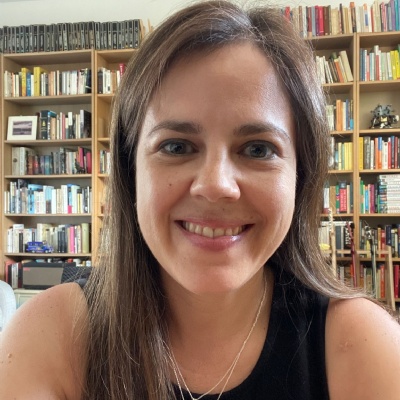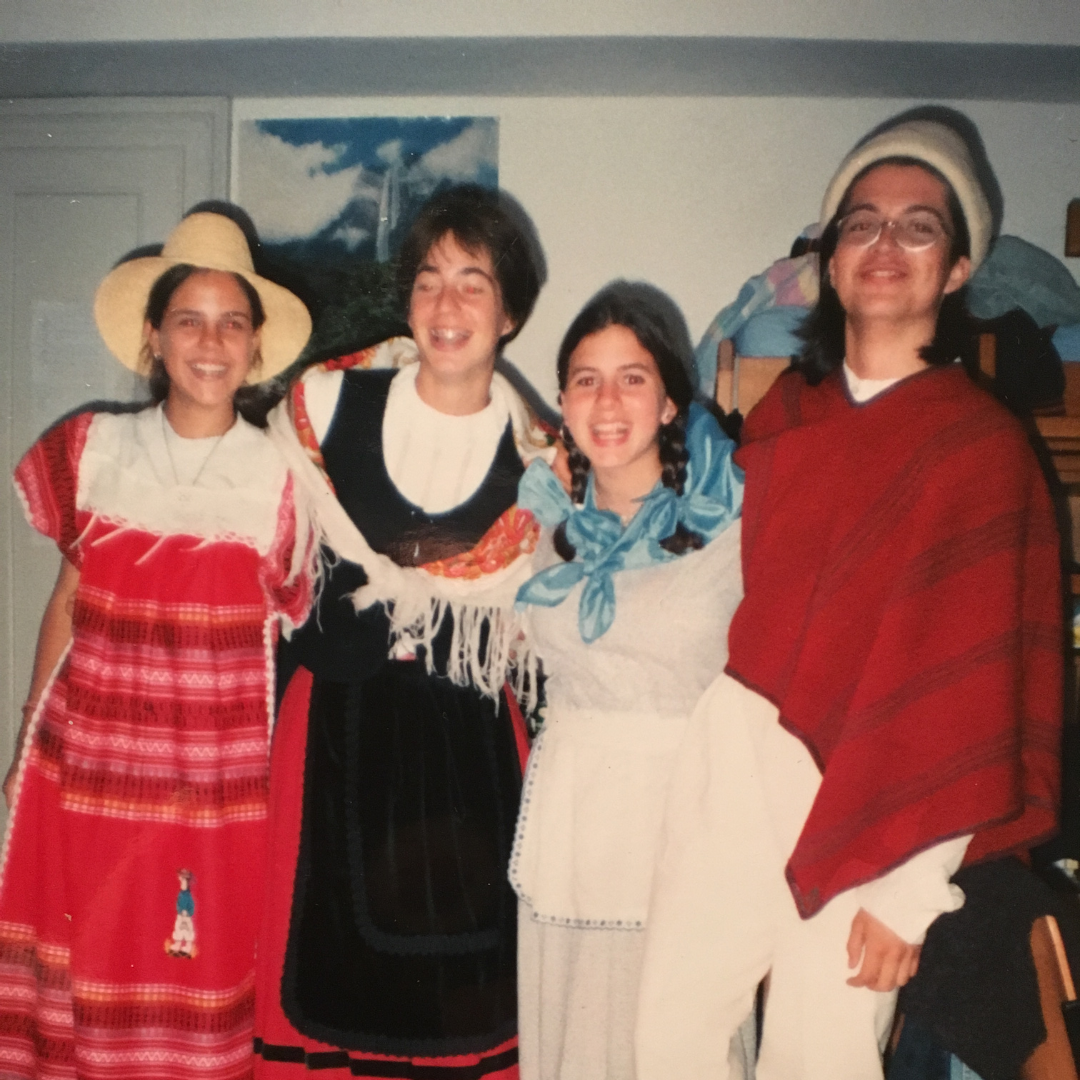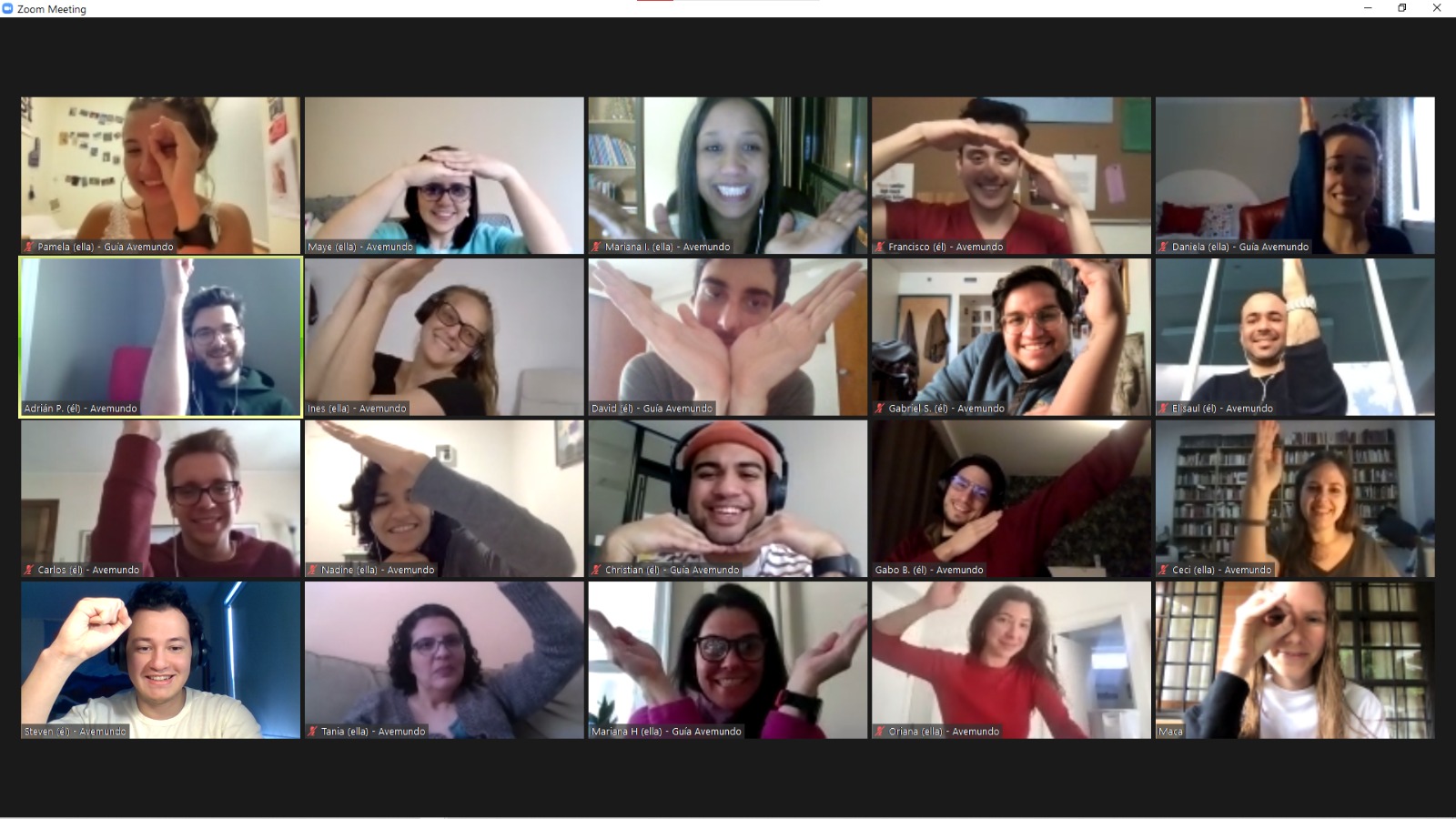Cecilia’s 26 Year Committment to the UWC National Committee of Venezuela

An Interview with Cecilia Egan (UWC Adriatic, 1995-1997) from the UWC National Committee of Venezuela
Where are you from and how did you end up at/come across UWC?
I was born and raised in Caracas, Venezuela. It was my aunt who first heard of UWC in a radio show where someone from the UWC Venezuela National Committee (NC) was promoting the 1995 selection. She encouraged me to participate, and a few months later I was petrified on a plane on my way to Italy.
What drew you to UWC then - and what keeps you drawn to UWC (and giving so much of your time to it!) today?
I think when most young people hear about UWC and what the movement stands for, there is a sense of recognition. It's something I've seen over and over again in selections. This realisation that there are more people out there with the same concerns, the same drive, and a shared sense of idealism. Age definitely tones it down, at times even makes you cynical, but when I go back to my NC or GSP selection, when I interview a 16 year old who wants to make things better, I am reminded once again that there is so much to do and to give.
How, why and when did you first become a volunteer for your NC?

The year I was selected (1995), our NC was going through a massive transformation. For many years we had been under the generous patronage of a government funded institution, but that year their sponsorship stopped, and we were left in the air. So from the moment my cohort got selected, even before going to our respective schools, we started working in the NC organising files, collecting data and thinking of ways to fundraise. Once my two years were up, I went back home and reconnected with them. There was always a sense of family among us, and a deep sense of duty to repay the gift we had been given. On top of that, it was fun! Selection weekend was probably one of the highlights of the year. It didn't matter if we were in the middle of final exams or major work projects, we always made time for it. Years later I emigrated and continued to help as an advisor. In 2016 I moved to the Philippines and got contacted by their NC through the Hub, and that's how my husband and I became 'honorary' UWC Philippines NC members. In 2018 I also became a GSP selector, and currently I'm vice chair of the Venezuelan NC, and the Americas & Caribbean Representative for the CNC.
Why do you think that NC work is a meaningful way to give back to or stay connected with UWC?
At the NC level, discussions about the nature of UWC are always ongoing - what the experience meant for us, how we can carry it on afterwards, the direction the movement should take, etc. Nowadays, there are also very cool and fruitful partnerships between NCs, so we connect, brainstorm and learn from one another. Once again the world becomes smaller and tighter! To me, NC work is a way to perpetuate what's so unique about UWC, what makes us different from other international schools or student exchange programs. At the same time, a well thought-out selection process could be like a mini UWC experience even for those students who don't get selected. There is a lot of personal growth involved when you are 16 or so, and you are interviewed for the very first time in your life. We cannot get places for everyone, so the least we can do is share a bit of the UWC magic.
And in what ways do you think NC work is a meaningful way to have an impact on your community?
This is the eternal conundrum for UWC alumni. As a young UWC graduate, the idea of having an impact on my community was rather grandiose, almost unattainable. But not everyone is cut out to be a Greenpeace champion, or work in Parliament. I must confess, it took me a while to realise that the scale of the impact should not be the ultimate goal of an agent of change. Whether it is donating money to a charity of choice, helping in a soup kitchen, or even having a hard conversation at work that might change a colleague's mind about inequality, for example, every little everyday gesture is enough. It is about making time, incorporating the causes that are important to us into our everyday lives. Some people incorporate such causes into their work, and that's fantastic! But there is no limit to what we can do or how we do it if we want to help others. Just as there is room for the whole spectrum of socioeconomic realities, nationalities, religions etc. at UWC, why shouldn't we expect the whole spectrum of ways to be impactful?
What do you enjoy most about your NC work?

In a way, being part of the NC is an extension of the UWC experience. Working in a multi-school, multi-generational environment is a confirmation that, within the diversity, the UWC experience is quite common across the movement. Discussions are intense and passionate, so finding smart solutions and coming to a consensus becomes incredibly rewarding. At the same time, helping others embark on an experience of a lifetime must be the best feeling in the world!
What are the main challenges you face in your NC work?
First and foremost, the main challenge is the brain drain we are facing in Venezuela. There are only a handful of alums left back home, so we had to turn our NC into a virtual one. That was one of the silver linings of Covid and how we work in times of a pandemic. Still, it is not easy to operate long distance and without that element of true camaraderie that develops so naturally during an in-person selection process. The second challenge is quite common among NCs: volunteer burnout. Ours is a relentless process - we haven't even finished sending students to their schools when we have to start planning and promoting for the next cycle. It is a time consuming, labor intensive job. High rotation of volunteers also brings added challenges. We are working on a way to have a healthy overlap between groups, so that we can pass on training and knowledge, institutional memory, and make the NC truly sustainable. Thirdly, there are the challenges around fundraising. Before COVID19, we would reach out to corporates to source for support for students who did not have flights as part of the scholarship offers. Then COVID-19 came and some NC members ended up digging into their pockets to ensure that students travelled back home to prepare for their transition to university.
What would you say to young graduates today (or older alumni) who are looking to find ways to give back to or get more involved with UWC?
Whether it is money, talent or time, UWC is always in need of volunteers. My grandpa used to say that the true gift you can give is your time, which is your most precious (and finite) resource. I think there's room for everyone's level of commitment and expertise. If you're back home or live elsewhere now, reach out to your local NC -there are always multiple opportunities to lend a hand. You're a student with limited time/money? Find out if there's a group of UWC alumni around. You're a foodie and are looking to connect with likeminded UWCers? Find UWC Foodies on FB. It's a wonderful community where lots of discussions (even beyond food) take place. If you're interested in governance or other areas of work that may not necessarily relate to selection, keep an eye on the UWC website. There are openings to join the UWC Board and UWC Council every so often.
